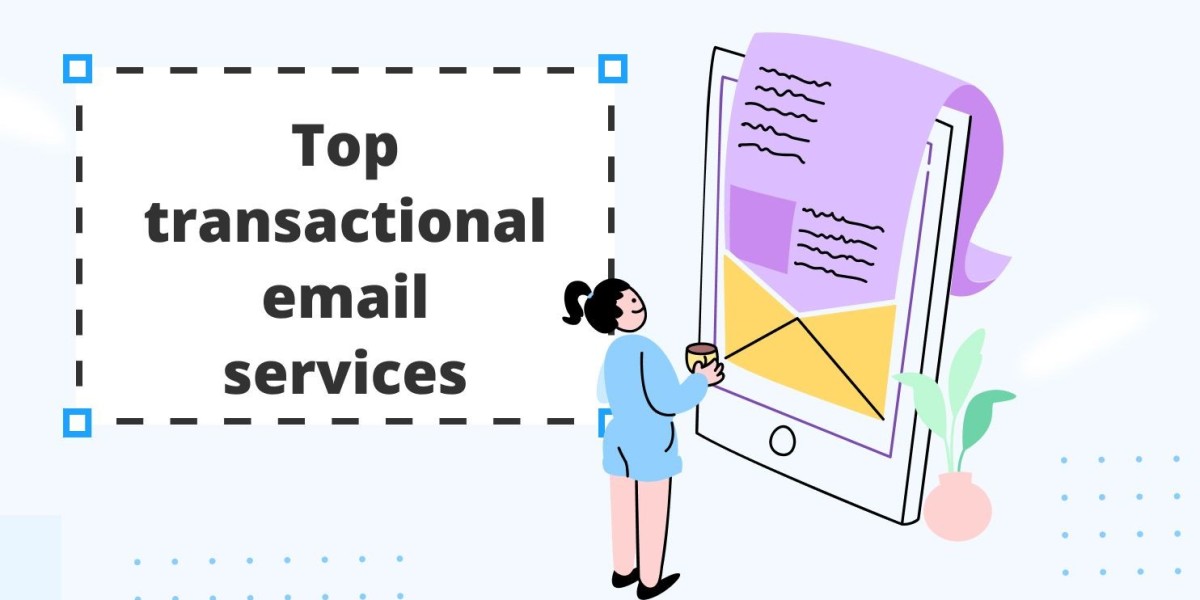Online marketplaces, by their very nature, facilitate complex interactions between buyers and sellers. Unlike single-vendor e-commerce stores, marketplaces involve multiple parties, making clear, reliable, and timely communication absolutely vital. In this intricate ecosystem, transactional emails serve as the essential threads that hold the entire user experience together, building trust and ensuring smooth operations. For online marketplaces, particularly in cost-sensitive markets, finding the cheapest transactional email service provider in India is a strategic decision that can significantly impact both user satisfaction and the bottom line.
What are Transactional Emails Marketing Services?
Transactional emails are automated, one-to-one messages sent to individual recipients in direct response to a specific action or event initiated by that user. Unlike marketing emails, which are broadcasted to a large audience with a promotional or sales-oriented goal, transactional emails provide crucial, expected, and often time-sensitive information directly related to a transaction, account activity, or service interaction. While their primary purpose is informational and functional, a well-executed transactional email also contributes to a positive brand perception and customer loyalty. Examples include order confirmations, password resets, shipping notifications, and, for marketplaces, seller notifications or buyer updates. They are fundamental for completing an agreed-upon interaction and delivering on a core service promise.
The Indispensable Role of Transactional Emails in Online Marketplaces
In an online marketplace, trust is a fragile commodity. Buyers need assurance that their orders are being processed, sellers need confirmation of sales, and both parties need real-time updates. Transactional emails are the backbone of this communication, fostering transparency and reducing friction throughout the entire marketplace journey.
1. Order Confirmation and Receipt: This is perhaps the most fundamental transactional email. Immediately after a buyer completes a purchase, an order confirmation email is sent. For a marketplace, this email is more complex, often needing to confirm the order from the specific seller(s), list individual items, quantities, prices, total cost, shipping address, estimated delivery date, and provide an order number. It's the first tangible proof for the buyer that their transaction was successful and provides crucial details they expect. For sellers, a corresponding notification confirms a new order has been placed for their items.
2. Shipping and Delivery Updates: Once an order is dispatched, a shipping confirmation email with a tracking number is essential. As the order progresses, subsequent transactional emails can provide real-time updates: "Out for delivery," "Delivered," or "Delivery attempted." This transparency is critical for customer satisfaction, especially when dealing with multiple sellers and varying shipping methods. It reduces customer anxiety and the volume of "where is my order?" inquiries to customer support.
3. Account Creation and Verification: When a new user signs up on a marketplace, a welcome email and often a verification email (e.g., to confirm their email address) are sent. These are vital for securing accounts and ensuring that users can access their profiles, start Browse, or set up their seller storefronts. This initial interaction sets the tone for their relationship with the marketplace.
4. Password Resets and Security Alerts: Account security is paramount for online marketplaces. Transactional emails are the standard method for handling password reset requests, enabling users to regain access to their accounts securely. They are also crucial for sending security alerts, such as notifications of suspicious login attempts or changes to account details, protecting users from fraud and unauthorized access.
5. Seller Notifications: For the seller side of a marketplace, transactional emails are equally critical. These include:
New order notifications: Alerting sellers to incoming purchases.
Inventory alerts: Notifying sellers when stock is low for specific items.
Payout notifications: Confirming payments processed to sellers.
Listing updates: Confirming changes to product listings or policy updates relevant to sellers. These communications are vital for sellers to manage their operations effectively on the platform.
6. Refund and Cancellation Confirmations: When an order is canceled or a refund is processed, clear transactional emails are necessary to inform both the buyer and the seller. These emails should detail the reason for cancellation/refund, the amount refunded, and when the funds can be expected. This ensures transparency and helps manage expectations during potentially sensitive situations.
7. Customer Feedback and Review Requests: Post-delivery, a transactional email can be sent to politely request a product review or feedback on the overall marketplace experience. This is crucial for building social proof, improving seller ratings, and gathering valuable insights for marketplace enhancement.
Core Benefits of Transactional Emails for Online Marketplaces
Building Trust and Credibility: Consistent, accurate, and timely transactional emails reassure buyers and sellers, fostering confidence in the marketplace's reliability and professionalism. This is the foundation of a successful online platform.
Enhanced Customer Experience: By providing all necessary information proactively, transactional emails create a seamless and stress-free user journey, from Browse to post-purchase support. Users feel informed and in control.
Reduced Customer Support Load: When users receive clear updates at every stage, they have fewer reasons to contact customer support with basic queries (e.g., "Has my order shipped?"). This frees up support teams to handle more complex issues.
Increased Conversion and Retention: A transparent and reliable communication flow through transactional emails reduces cart abandonment (e.g., via follow-up emails for pending payments) and encourages repeat purchases, leading to higher customer lifetime value.
Operational Efficiency: Automation of these high-volume, critical communications significantly streamlines marketplace operations, allowing platforms to scale without proportionate increases in manual customer service efforts.
Security and Fraud Prevention: Instant alerts for account activity or password changes via transactional emails provide an important layer of security, protecting both the marketplace and its users.
Data Collection and Personalization Opportunities: Transactional emails offer opportunities to collect feedback and, in a non-intrusive way, subtly suggest related products (cross-selling) based on purchase history or Browse behavior, optimizing future engagement.
Best Practices for Transactional Emails in Marketplaces
Instant Delivery: These emails should arrive in the inbox almost instantaneously after the triggering event. Delays can cause anxiety and lead to support tickets. Crystal Clear Content: Be direct and concise. Use clear subject lines that immediately convey the email's purpose. All crucial information should be easy to find. Personalization: Address the user by name and include specific details of their transaction (order number, item names, seller names, etc.). Branding Consistency: Maintain your marketplace's brand identity (logo, colors, tone) even in functional emails. This reinforces your brand at every touchpoint. Mobile Responsiveness: Ensure emails are perfectly formatted for viewing on smartphones, as a large percentage of users will access them on mobile devices. No "No-Reply" Addresses: Always use a sender email address that allows replies, directing them to a monitored support inbox. This provides a clear channel for customer inquiries. Actionable Information: Include relevant links, such as "Track Your Order," "View Your Account," or "Contact Seller." Compliance: Adhere to all relevant email regulations and privacy laws, especially concerning data handling.
Conclusion
Transactional emails are the silent workhorses of online marketplaces, quietly performing the critical function of keeping buyers and sellers informed, secure, and satisfied. Their importance cannot be overstated. By providing timely, accurate, and personalized communications for every action and update, marketplaces build an indispensable foundation of trust and transparency. This, in turn, not only enhances the overall user experience but also drives operational efficiency, reduces support costs, and ultimately fuels customer retention and sustained growth in the highly competitive online landscape. A robust transactional email strategy is a non-negotiable for any thriving online marketplace.
About Us:
SpaceEdge Technology is best leading digital marketing company based in India, known for delivering innovative and result-driven marketing solutions. Specializing in SEO, social media marketing, PPC, content marketing, and web development, the company helps businesses enhance their online presence and drive growth. With a team of skilled professionals and a client-centric approach, SpaceEdge Technology is recognized for its commitment to quality, creativity, and measurable success in the digital landscape.
Choose SpaceEdge Technology for the best digital marketing service because they offer expert strategies, data-driven results, customized solutions, and a proven track record of boosting online presence and ROI.







